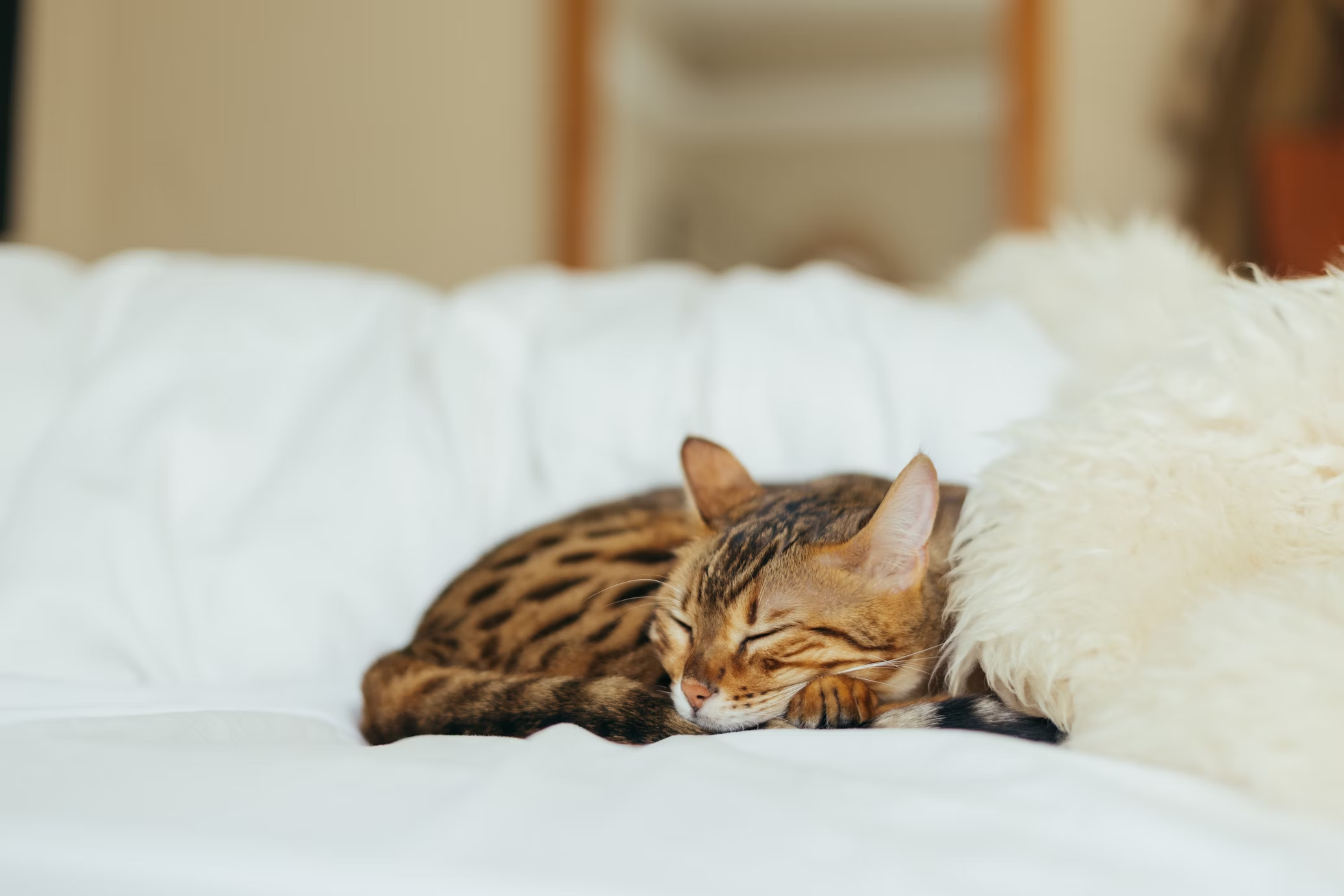5 Ways to Stop a Cat from Peeing in the House (And Why They Do It)

Cats are known for their cleanliness, so when they start peeing outside the litter box, it can be both confusing and frustrating. This behavior isn’t just a random act; it’s usually a signal that something is wrong, whether it’s related to health, environment, or stress. In this post, we’ll explore why cats might be peeing in the house and provide five effective strategies to help stop this behavior.
Why Do Cats Pee Outside the Litter Box?
Before diving into the solutions, it’s essential to understand the potential reasons why your cat might be peeing in inappropriate places. Here are some common causes:
- Medical Issues:
- Urinary Tract Infections (UTIs): One of the most common reasons for inappropriate urination in cats is a urinary tract infection. This condition can cause pain and discomfort, leading the cat to associate the litter box with pain and avoid it.
- Kidney Disease: Cats with kidney issues might drink more water and urinate more frequently, sometimes outside the litter box.
- Bladder Stones: These can cause irritation and blockage, leading to difficulty in urination, which might make a cat avoid the litter box.
- Diabetes: Increased thirst and urination are common symptoms, leading to accidents outside the litter box.
- Behavioral Issues:
- Stress and Anxiety: Cats are sensitive creatures, and changes in their environment, such as a new pet, moving to a new home, or changes in the household, can cause stress, leading to inappropriate urination.
- Territorial Marking: Unneutered male cats, in particular, might spray urine around the house to mark their territory.
- Litter Box Problems: The cat might find the litter box unpleasant due to its location, cleanliness, or type of litter.
- Environmental Factors:
- Changes in Routine: Cats thrive on routine, and any disruption, such as changes in feeding times, the addition of new pets or people in the household, or even changes in your schedule, can cause stress.
- Litter Box Location: If the litter box is in a place that the cat finds inaccessible, noisy, or unsafe, they might avoid using it.
- Dirty Litter Box: Cats are very particular about cleanliness. A dirty litter box might deter them from using it.
5 Ways to Stop a Cat from Peeing in the House
Now that we understand why cats might be peeing outside the litter box, let’s look at five effective strategies to stop this behavior.
1. Visit the Veterinarian
The first and most crucial step is to rule out any medical issues. If your cat is peeing outside the litter box, take them to the veterinarian for a thorough check-up. Conditions like UTIs, kidney disease, and diabetes require immediate medical attention. Once any medical issues are treated, the inappropriate urination is likely to stop.
- Action Tip: Schedule regular veterinary check-ups to ensure your cat’s health is in good condition. Early detection of medical problems can prevent long-term behavioral issues.
2. Create a Stress-Free Environment
Stress and anxiety are significant factors in inappropriate urination. Cats are creatures of habit, and they thrive in a calm, predictable environment.
- Provide Safe Spaces: Ensure your cat has access to quiet, safe spaces where they can retreat when they feel stressed. This could be a cozy bed, a quiet room, or even a high perch.
- Maintain Routine: Stick to a consistent routine for feeding, playtime, and litter box cleaning. This consistency helps reduce stress.
- Use Pheromone Sprays: Feline pheromone sprays or diffusers can help calm your cat and reduce stress-related behaviors like inappropriate urination.
- Action Tip: If there have been recent changes in the household, try to minimize further disruptions and give your cat time to adjust. Providing extra attention and comfort during stressful times can also help.
3. Optimize the Litter Box Situation
The litter box itself can be a significant factor in whether your cat uses it or not. Making sure the litter box is clean, accessible, and comfortable is essential.
- Number of Litter Boxes: A good rule of thumb is to have one litter box per cat, plus one extra. This ensures that each cat has a clean, accessible place to go.
- Location Matters: Place litter boxes in quiet, low-traffic areas where your cat feels safe. Avoid placing them near loud appliances or in busy parts of the house.
- Keep It Clean: Scoop the litter box at least once a day and change the litter regularly. Some cats are extremely particular about cleanliness and won’t use a dirty box.
- Type of Litter: Experiment with different types of litter to find one that your cat prefers. Some cats have a strong preference for a particular texture or scent.
- Action Tip: Observe your cat’s behavior and preferences regarding the litter box. If they seem reluctant to use it, consider changing the type of litter, the location, or adding more boxes.
4. Address Territorial Marking
If your cat is peeing to mark territory, especially in multi-cat households, addressing this behavior is crucial.
- Spay/Neuter Your Cat: If your cat isn’t spayed or neutered, doing so can significantly reduce territorial marking behavior.
- Manage Inter-Cat Relationships: In multi-cat households, ensure that each cat has enough space and resources (like food, water, and litter boxes) to reduce competition and stress.
- Use Enzyme Cleaners: Clean any areas where your cat has peed with an enzyme-based cleaner that neutralizes the odor. This can prevent your cat from returning to the same spot to mark again.
- Action Tip: Monitor interactions between cats in the household and intervene if there are signs of aggression or stress. Providing separate resources and safe spaces can help reduce tension.
5. Positive Reinforcement and Retraining
Retraining your cat to use the litter box and rewarding them for good behavior can help stop inappropriate urination.
- Reward Good Behavior: When your cat uses the litter box, reward them with treats, praise, or playtime. Positive reinforcement helps reinforce the desired behavior.
- Don’t Punish: Avoid punishing your cat for peeing outside the litter box. Punishment can increase stress and make the problem worse. Instead, focus on understanding the cause and addressing it.
- Litter Box Retraining: If your cat has developed a habit of peeing outside the litter box, consider retraining them. Start by confining them to a small area with the litter box, gradually increasing their space as they consistently use the box.
- Action Tip: Be patient and consistent with training. Some cats may take time to adjust to changes, but with positive reinforcement, they can learn to use the litter box consistently.
Conclusion
Inappropriate urination can be a frustrating issue for cat owners, but understanding the reasons behind this behavior is the first step toward resolving it. By addressing medical issues, reducing stress, optimizing the litter box situation, and using positive reinforcement, you can help your cat return to using the litter box consistently.




